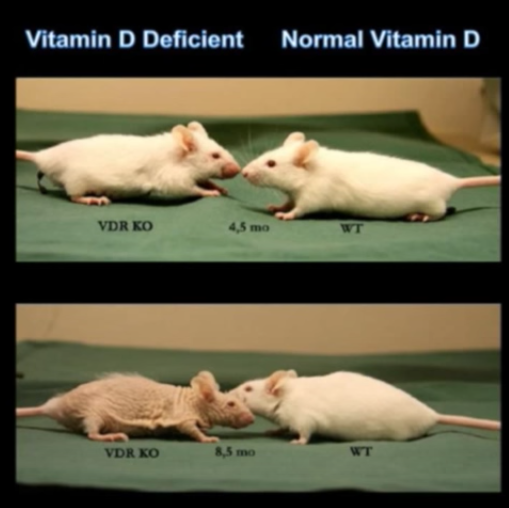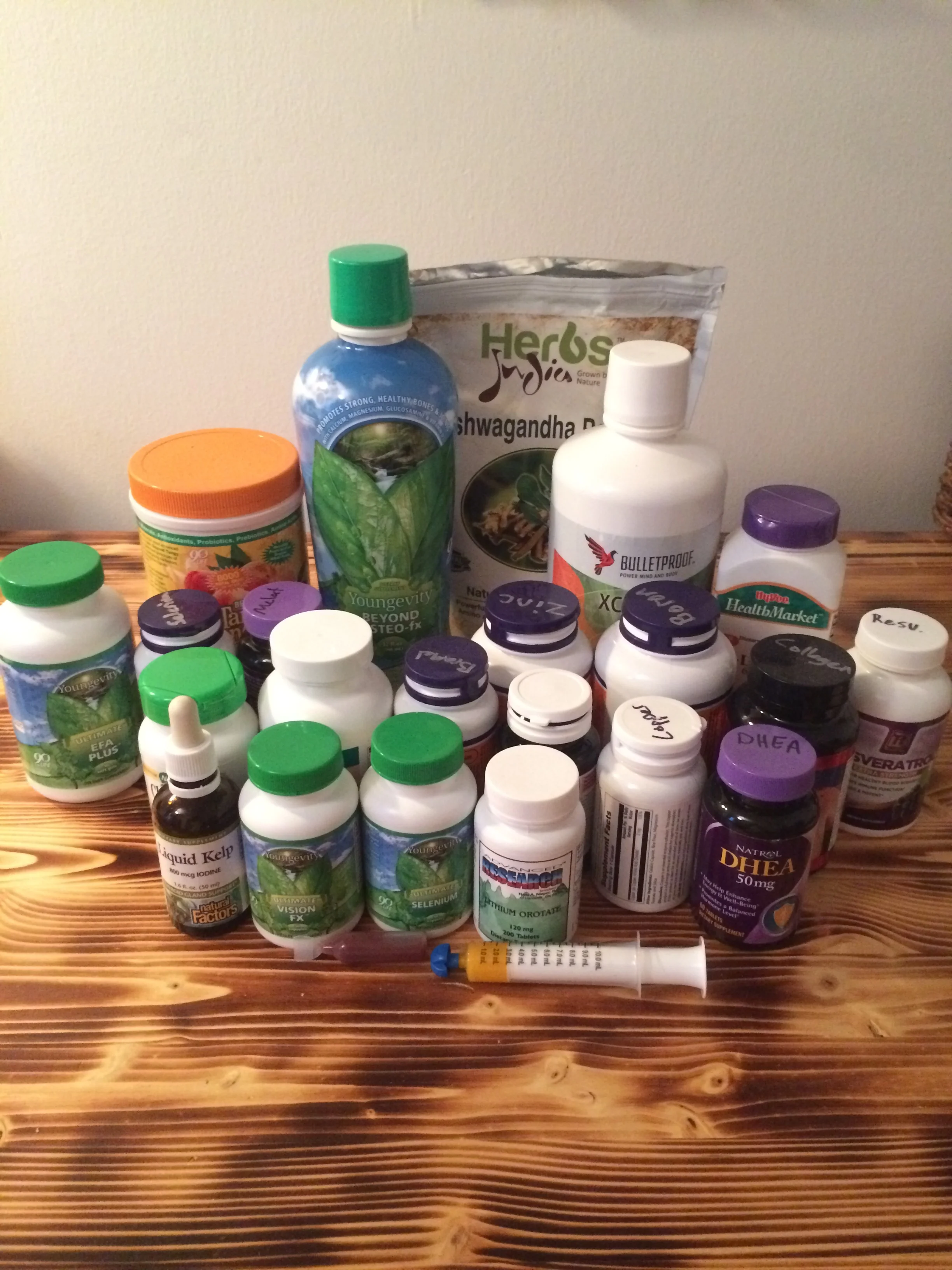3 Reasons Why Fat is Beautiful & Healthy
Healthy Fats are an extremely powerful and useful nutrient to employ heavily in your diet! Photo Credit: chttp://www.thehealthyhabitat.com/
Fat is awesome, and it's good for you. I am not talking about being overweight, though there are certainly tons of beautiful, overweight humans. I am talking about dietary fat. Natural, organic, grass-fed, saturated fats, and even, no especially, cholesterol! I know what most people are thinking. Wait, doesn't fat cause higher cholesterol and lead to heart disease? We will get to that, but for now, lets look at why eating plenty of dietary fat will support health, weight, body composition, cognition and energy.
1. URGENT UPDATE: Fat Requires the Least Insulin of Any Food !!
This is huge. This is important. This is paradigm shifting information. Remember this every time you have to choose between the low-fat option and the naturally full-fat option. Cream or sugar in your coffee? If you must choose one, cream is multiple times better for you (though I would take it to a whole new level and use butter and MCT oil). In one of my earlier articles titled Is This Strategy Really Better Than Steroids?, I explained in detail why controlling insulin should be a major focus of your health and a major tool for controlling body composition. I believe the majority of obesity does not come from lack of discipline or lack of exercise but rather an abundance of starchy grains and sugars in our diets. Most foods we eat trigger an insulin response in the body. Why is insulin important?
Insulin is one of the most impactful hormones that our bodies manufacture. It is a storage hormone, responsible for transporting and storing calories and nutrients. When carbohydrates are over-consumed, insulin helps convert them and store them as fat. In the absence of insulin, fat storage stops and fat burning begins. Let me say that again, When the body has low levels of insulin, fat storage decreases and fat burning increases! Doesn't this sound like something we could all benefit from? Without insulin fat storage is essentially impossible. One more time; without insulin, fat storage is essentially impossible! This is one of the main health benefits people experience from eliminating sugars and grains from their diets.
Carbohydrates receive the majority of the blame and attention when it comes to insulin, blood sugar and weight problems. Something people often overlook however, is the fact that protein consumption also increases the amount of insulin the body produces. The measure of how much insulin a certain food requires is called the Insulin Index. Note that although insulin index scores and glycemic index scores are highly correlated, they are quite different. Glycemic index and glycemic load are measures of how a particular food affects blood sugar, not insulin directly. Why is this important? As I stated in the last paragraph, when the body has low insulin levels, fat storage decreases and fat burning increases. This means that even a no-carb, high-protein meal can slow down our fat burning mechanisms for a time. So, be aware of how much protein you are consuming as well as your carbohydrate intake!
Here is the really good news, fat requires next to no insulin. This is fantastic because it means this: When we consume fat, our body's insulin response is next to nothing! Keeping our insulin response low will signal our metabolism to stay in fat burning mode and we will not store any of the fat (as long as the fat is NOT consumed with a high carb or protein meal). Without insulin fat will not be stored, it will be burned. So, if you really want to burn fat, eat more healthy fats. Oh, and as I wrote about in Is This Strategy Really Better Than Steroids?, insulin also works against several other beneficial hormones like testosterone and growth hormone. When insulin levels are up, testosterone and growth hormone go down! Here are just a few examples of, somewhat unusual, snacks that can make eating fat, without protein or carbs possible: Warm tea with a tablespoon of organic/grass fed butter or organic coconut oil, Bulletproof Coffee (one of the greatest inventions of our time, an infatuation of mine!), an avocado, warm vegetable broth with a tablespoon of organic/grass fed butter. Macadamia nuts are another great source of fat, though they do have small amounts of protein and carbs. Here are some really interesting and useful charts showing the insulin index of foods.
These are some of the lowest insulin requiring foods. Remember, insulin is the storage hormone. In the absence of insulin, the body cannot store fat and will also increase its fat burning metabolism!
Here is a list of insulin indexes compared to glycemic scores. Notice that even no-carb, high protein foods require a noteable amount of insulin.
2. Fat Will Satisfy You for Hours, Goodbye Munchies, Goodbye Food Cravings!
One of the many frustrating and ineffective characteristics of the typical western diet is the constant, dramatic, blood sugar swings that go along with it. These dramatic ups and downs lead to food cravings and energy dips within just a few hours of eating. We have all experienced that giant pasta or bread meal that seems to be so filling, only to realize an hour or two later that we feel like eating again. Fat is satisfying, it can sustain your hunger and cravings for far longer than carbohydrates or protein can. Yes, fat is high in calories, part of the reason why it is so satisfying. Without the blood sugar peaks and valleys triggered by high carb meals, you will enjoy the long-lasting satisfaction that fat can offer.
3. Fat Fuels Hormones and the Brain!
Cholesterol, from healthy sources like natural, grass-fed organic: eggs, bacon, hamburger, cheese, and fish, is fantastic for you. In another article I wrote titled, Houston, We Have a Hormone Problem, I discuss the importance of maintaining healthy hormone levels. Here's the kicker, the body uses cholesterol to make testosterone, one of the most beneficial hormones for energy, vitality, anti-aging and body composition. This means giving your body more cholesterol, through diet, can help support testosterone levels which is one of the most effective ways to feel and look great.
The brain is the fattiest organ in the body. 70% of your brain is fat! Getting plenty Omega-3 fats, cholesterol, MCT's and saturated fats will have a noticeably positive impact on cognitive performance, especially when you keep insulin levels down. Any time people argue in favor of low-fat diets, I try to remind them that the brain is made of 70% fat.
If you want to promote neurogenesis (the growth and development of nervous tissue, including new brain cells), make sure to get your healthy fats, especially Omega-3 fats which have been studied and proven to increase neurogenesis. Unfortunately, our western diets are far lower in omega-3s than necessary for maximum neurogenesis. To make up for our lacking diet, supplementing with a high quality omega-3 is important . For a high quality Omega-3 fish oil supplement click HERE. The supplement featured below is processed in a very specific, low-to-no oxygen environment. This method of processing protects the quality of these essential fats. When buying any omega-3 supplement be sure to select one that is produced in the absence of oxygen. When fish oils (or olive and other oils) are exposed to air they quickly become rancid and oxidized, which eliminates the health benefits we are chasing in the first place. For a simple home test of your omega-3 supplement just smell the capsules inside the bottle. If the bottle of oil caps smells rancid, it has been oxidized and is damaged, throw it out. Your omega-3 supplements should smell fishy or oily but not pungent or rancid. Store out of light, in the fridge to maximize shelf life.
Studies have shown consistently that cholesterol lowering drugs increase the risk of Alzheimer's and poor cognitive function. This is because cholesterol is good for your brain. Consider the makeup of mother's breast milk. It is very high in fat, and compared to cow's milk, relatively low in protein. This is because our bodies and brains thrive off fat. The brain is growing faster during infancy than at any time in human development. If cholesterol was anything but beneficial for humans or for the brain, would mother's breast milk be high in fat and low in protein? I don't think so. Let's stop ignoring our genetic makeup and start considering how useful fat can be to both our physical and mental health!
Healthy Fats Are Not to Blame for Heart Disease, It's Proven!
High fat, high cholesterol diets are not to blame for heart disease. I hope you can see by now that insulin from high-sugar, high-carb diets is really to blame for fat storage and unhealthy ''bad cholesterol" levels. Chronic inflammation from foods high in sugar, grains and refined oils are another major cause of heart disease. Consuming sugar, grains and refined oils will increase the amount of oxidative damage and inflammation in the body. Over time, this chronic inflammation leads to a hardened scar-tissue-like build up in the arteries referred to as heart disease. For more information on how healthy fats do not cause heart disease, give this great article, written by one of my favorite doctors, a read. Here is the article Link. At the bottom of the article is a list of over a dozen quality studies that show cholesterol and fat are not the causes of heart disease. Heck, even the FDA, an organization that once demonized fat, has changed their stance on fat recommendations. I guess you can only ignore the facts so long.
Note: Be Certain to Choose Healthy Fats
Animals, like humans, tend to store toxins in their fat tissue. This means eating non-organic, grain fed animals that consume high amounts of antibiotics, hormones, herbicides, pesticides, fungicides and who knows what else, can lead us to an increased exposure to these toxins. Fish especially, hold on to their toxins longer than mammals which can lead to scary-high levels of heavy metals and chemicals. Make sure to get your fish from the ocean or lake, not the GMO, artificially farmed, mass producers. Always look for organic or grass-fed, full-fat: butter, meats, cheeses and other animals products.
On top of the toxin issue, studies are finding that the fat profile of grass-fed animal products is superior to the grain-fed, non-organic animal products. Non-organic, grain fed animals have lower rates of the omega-3 fats which we just discussed. These fats are well-known to decrease inflammation and improve all sorts of biological processes including brain health, circulation, heart health and skin health. For an excellent Omega-3 supplement that will keep your cognition high and your inflammation low, click HERE.
So when you look for butter, eggs, beef, pork, fish, cheeses and so on. Look for naturally raised, organic products.
Fats to Avoid!
I have already mention this but just to reiterate the importance here. Processed oils are damaging to health. Peanut oil, cottonseed oil, canola oil, margarines, fake butters, butter substitutes, soybean oils and several others, are highly processed, extremely high in omega-6 fats and will lead to a disruptive imbalance in your omega-3 to omega-6 ratio. These types of oils are damaging to our health for a number of reasons. The omega-3 to omega-6 ratio should be roughly 1:2 or even 1:1. Many of us have very imbalanced ratios of omega-3 and 6. Many Americans, that consume just an average amount of canola, soybean or cottonseed oil may have ratios as high as 1:50 omega-3:omega-6. The imbalance of fats leads to increases in inflammation. These oils also increase oxidative damage in the body, because they become rancid and oxidized shortly after processing. But, I don't want to beat a dead horse so, for more information on this click HERE.
Please leave comments or questions below !








